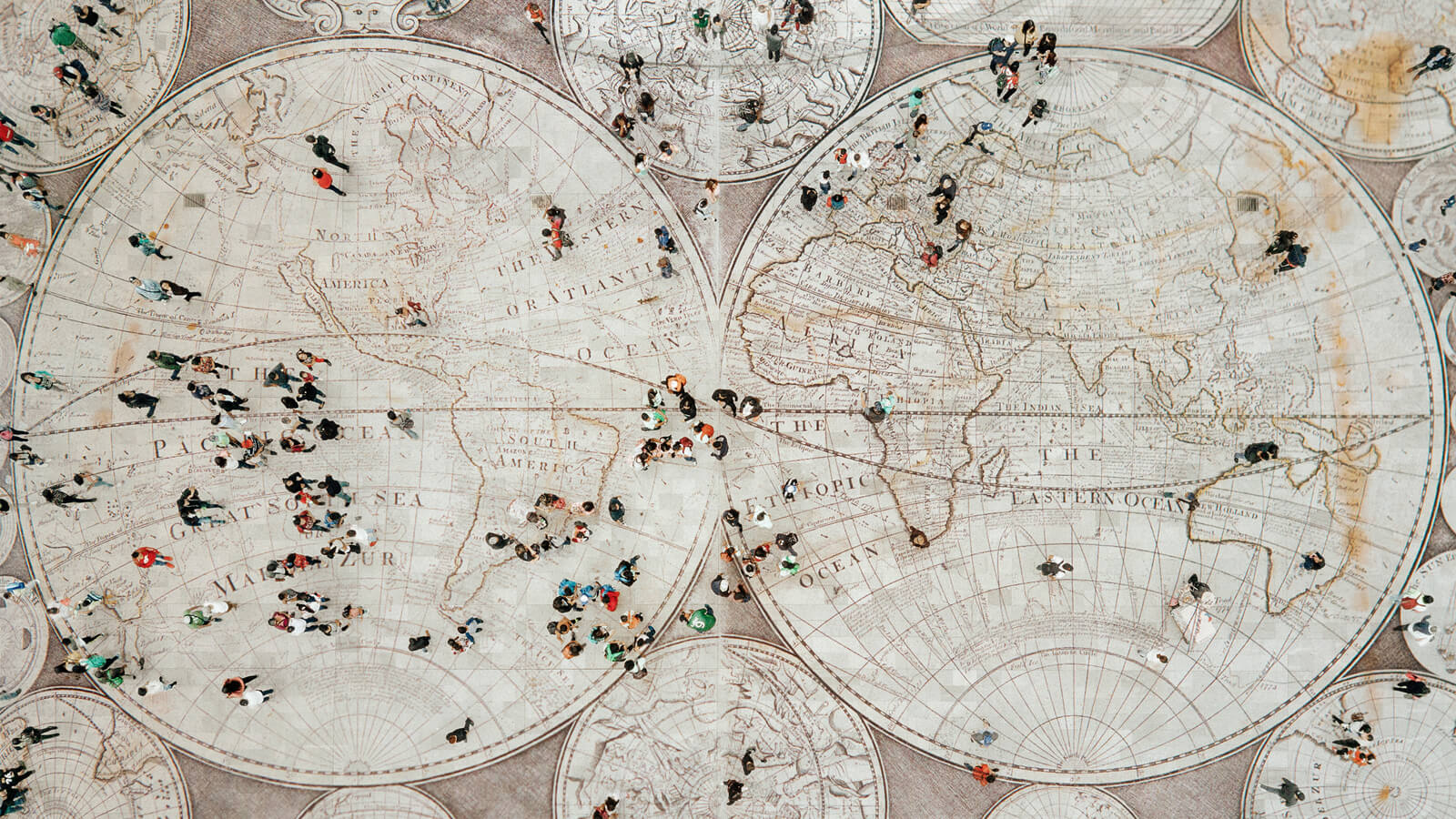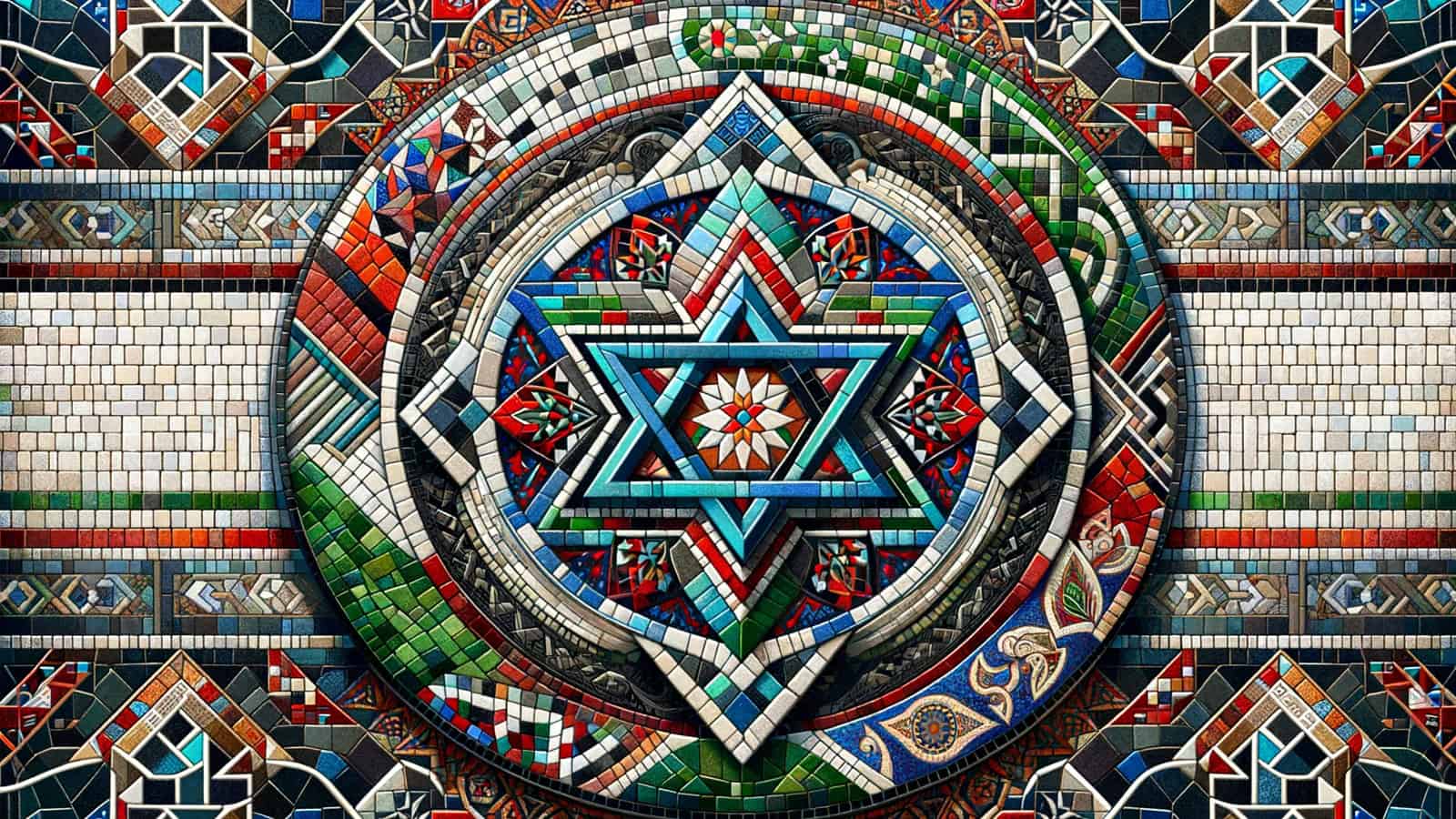Become a supporting member to watch the full conversation
Humanity is entering the Transformation Age, a new era of human civilization, with Integral Consciousness rising at its leading edge. Our members don’t use Integral Life as just another media subscription they use weekly or discard. Instead, most stay with us for years, using Integral Life to learn Integral Philosophy and build an integral mind slowly, methodically and when they need it. We’re here to help you shape the future that’s emerging no matter where your life takes you.
Get Full Access For $1 (7 days)* Or explore all membership plans → * Trial price for the first 7 days, then $20/month. Cancel or switch plans in 2 minutes at any time.“Once again, ‘unitas multiplex’ is still the best motto: universal deep features, but culturally relative surface features, are what we find in the growth to goodness.”Ken Wilber, One Taste
Immigration matters have been viewed by many as a “wicked problem” — implying a complexity that has sets of values in tension, something societies have dealt with since the very dawn of civilization itself. Human beings are by their very nature a migratory species, having colonized almost every major land mass on the planet and competed over the scarce resources provided by our local environments and social systems.
And yet, over that long and usually violent history, migration has been a powerful force in the unfolding of the human spirit. The ongoing exchange of ideas, values, identities, traditions, and worldviews has generated new forms of art, literature, engineering, science, and mathematics, while also deepening our empathy and understanding of each other, and of the human condition as a whole.
While the challenges and benefits of migration have been with us since the very beginning, in today’s world the problems have become even more wickedly complex. We are now seeing an entirely new set of pressures and life conditions weighing down on us, as things like climate change create additional drivers of forced migration at a time when the nation-state has become our primary source of identity, governance, and distribution of scarce resources, when social and institutional trust is at an all-time low, and when the boundaries between people feel more opaque than ever.
There are competing views in all this, that too many or not enough immigrants is unwise, while too few is uncompassionate, and in the ways migration impacts the economy and social life. So how do we find a more integral approach to immigration, one that:
a) is based on worldcentric values, ethics, and moral reasoning
b) respects the humanity, needs, agency, identities, and dignity of migrants (or the “other”, wherever we find it)
c) respects the agency, identities, and resources of citizens and understands their threat perceptions,
d) respects and includes ethnic differences without falling into ethnocentric thinking?
Watch as Magdalena, Mark, and Corey offer their own ideas and reflect on the reasons this issue has become one of the central fault lines in the culture wars. Topics include:
0:00 — Republic of the heart: remembering Terry Patten
10:25 — The “wicked problem” of immigration tensions
15:34 — The false choice between isolationism and “open borders”
17:59 — Include the values, negate the views
21:27 — Nation-state identities
23:24 — Borders: where identity and threat perception meet
28:05 — Direct causation vs. systemic causation
30:10 — Barack Obama’s border wall
33:40 — “Desirables” and “undesirables”
39:16 — Cultural compatibility and healthy pluralism
43:47 — The problem of scarcity
47:34 — Rising immigration patterns in the U.S.
50:35 — Calling out the tropes: Islam and welfare
55:52 — The development of identity
57:27 — How social media is making ethnocentrists of us all
1:03:15 — How should integral standards be enforced?
1:08:20 — How international diplomacy can help
1:11:37 — Regulating the transnational economic holon
1:15:40 — Moving beyond the nation-state
1:22:01 — The neoliberal bias: extrinsic vs. intrinsic value
1:23:36 — Developmental diversity: wisdom and compassion
1:25:08 — The Canadian border wall
1:26:03 — The cruelty is the point
1:31:44 — Equal opportunities and more equitable inequities
Let us know what you think in the comments below!
If you enjoy this episode, be sure to check out more episodes of Integral Justice Warrior. Watch them all for only $1!
Written and produced by Corey deVos
Previous Episodes of Integral Justice Warrior
Polarity Politics and the 2024 Election
Between Hope and History: An Integral View on Israel-Palestine
From Socrates to Social Media: Renewing Our Commitment to Free Speech
Become a member today to watch this video presentation and support the global emergence of Integral consciousness
Membership benefits include:
Premium Content
Receive full access to weekly conversations hosted by leading thinkers

Journal Library
Receive full access to the growing Journal of Integral Theory & Practice library

Live Experiences
Stay connected by participating in Integral Life live events and discussions
Courses & Products
Get unlimited 20% discount off all products and courses from our friends and partners

Free Bonus Gifts
Download The Integral Vision eBook by Ken Wilber (worth $19 on Amazon) & The Ken Wilber Biography Series

Support of the movement
Support our mission of educating and spreading integral consciousness that is more critical than at any time in its history
Related Media
Beyond the Nation-State: Globalism, Plutocracy, and the Integral World Federation
Ken Wilber and Corey deVos
Ken and Corey explore how today’s transnational challenges and realities may be hastening humanity’s eventual growth toward increasingly inclusive and global forms of governance, what government might look like at the level of the global holon, and how we might actually be able to get there from here.
Unitas Multiplex: A More Integral Approach to Diversity
Roger Walsh and Ken Wilber
Roger Walsh and Ken Wilber explore a more integral approach to diversity that seeks to add a critical missing piece that has been missing from the conversation: the notion of developmental diversity.
Wicked Problems: Gun Violence
Corey deVos and Ken Wilber
In this exquisite 8-hour series, Ken and Corey take an in-depth look at America’s ongoing struggle with gun violence, using the four quadrants to track many of the most critical and commonly-blamed factors, conditions, and causes that seem to be contributing to this terribly wicked problem.
About Magdalena Smieszek
Magdalena Smieszek is an international lawyer, human rights advocate, scholar and educator, having worked over twenty years around the world with humanitarian and development-focused organizations, including a decade with the United Nations.
About Mark Fischler
Mark Fischler is a Professor of Criminal justice and current program coordinator for the criminal justice and criminology programs at Plymouth State University. Prior to joining the Plymouth State faculty, he practiced law, representing poor criminal defendants for the New Hampshire Public Defender’s Office. Mark has worked extensively with alternative theoretical models in law, constitutional law, and higher education, and has published on integral applications to teaching, being a lawyer, and legal theory. His focus in the classroom is ethics and criminal procedure, and is well respected for a teaching philosophy that emphasizes recognizing the humanity and dignity of each student. Professor Fischler was awarded the outstanding teaching award at his university in 2014. He currently offers a weekly Spiritual Inquiry class through Satya Yoga Studio.
About Corey deVos
Corey W. deVos is editor and producer of Integral Life. He has worked for Integral Institute/Integal Life since Spring of 2003, and has been a student of integral theory and practice since 1996. Corey is also a professional woodworker, and many of his artworks can be found in his VisionLogix art gallery.




 September 26, 2024
September 26, 2024 



